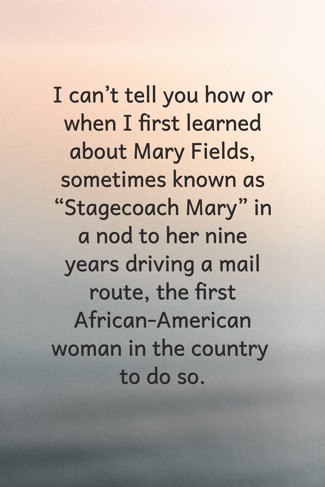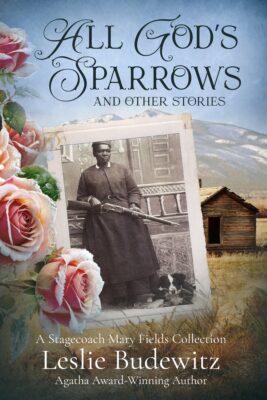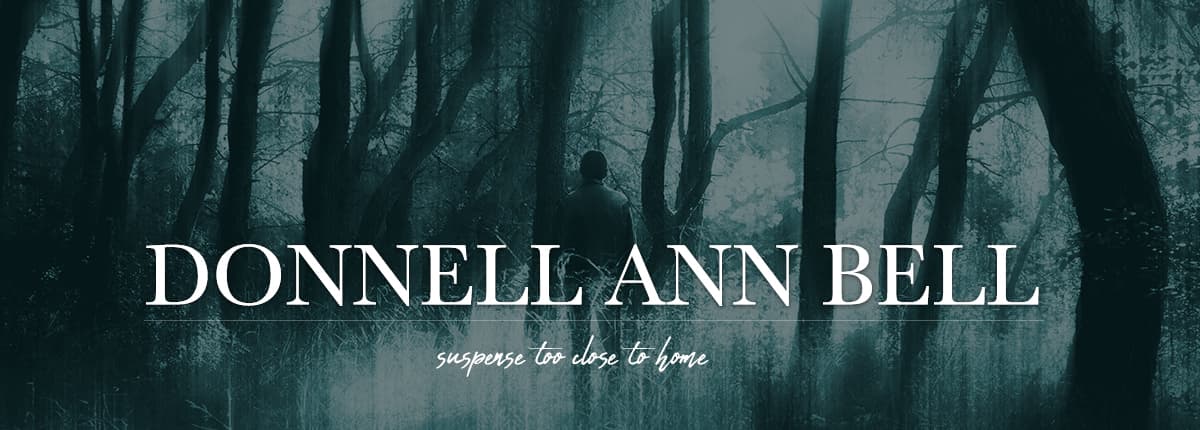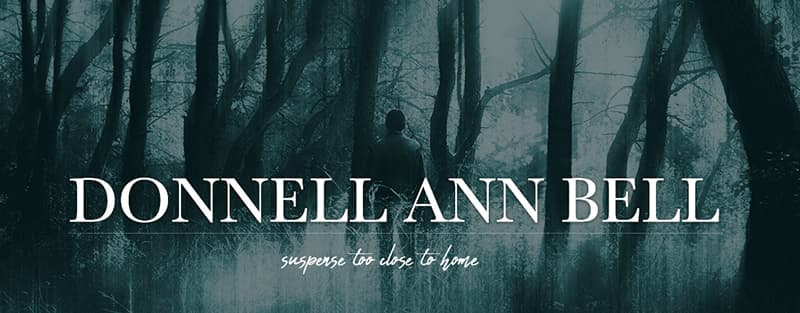Happy Friday, friends. Author Leslie Budewitz has a new release out, something we’ve been excited about since she told us of its existence and the subject behind it some weeks ago. Why did this well known cozy mystery author venture into historical fiction? Let’s find out. ~ Donnell
Following Where the Stories Lead Me
by Leslie Budewitz

Author Leslie Budewitz
Most readers know me as a cozy mystery author. After fourteen cozies, including a short story collection, split between two series, that makes perfect sense.
When my first standalone suspense novel, Bitterroot Lake, came out in 2021, followed the next year by Blind Faith, some readers asked why a new genre. (Both were written as Alicia Beckman; here’s the piece Donnell suggested I write about using a pen name: An Author by Any Other Name.) https://donnellannbell.net/an-author-by-any-other-name/
The answer was simple: I go where the stories take me.
And now, I’m doing it again, with historical short stories, each with a mystery slant, with All God’s Sparrows and Other Stories: A Stagecoach Mary Fields Collection. The stories imagine the life and heart of Mary Fields (1832-1914), a real-life woman born into slavery who spent her last 30 years in Montana, ten of them working with the Ursuline Sisters at St. Peter’s Mission. In Montana, she found freedom and community, and her own place in the West, bringing solace and justice to those in need. The collection brings together three stories originally published in Alfred Hitchcock Mystery Magazine, and a new novella, “A Bitter Wind,” set in 1897 and 1914, in which Mary helps a young picture bride solve the mysteries of her fiancé’s death, his homesteading neighbors’ bitterness, and her own future. The title story won the 2018 Agatha Award for Best Short Story; the others were both nominated for major awards.
Why take the trek back in time, on the page?
Because I go where the stories take me.
One reason I write is to delve into what interests me. I write about my hometown, a small lakeside community in NW Montana, in the Food Lovers’ Village Mysteries, because it’s a surprising and delightful town—a cozy town—that I knew readers would love to visit. I write about Seattle and Pike Place Market in my Spice Shop Mysteries because I fell in love with it as a college freshman, and the urban setting made it an intriguing contrast to the village setting.
But not every story rattling around in my brain fits within the cozy world. The layered, complex stories of my standalones are darker and grittier. They sprang naturally from different settings, one a fictional town in NW Montana, and the other in Billings, where I grew up, and where the unanswered question that nagged me for decades arose.
I can’t tell you how or when I first learned about Mary Fields, sometimes known as “Stagecoach Mary” in a nod to her nine years driving a mail route, the first African-American woman in the country to do so. But I know I was instantly fascinated. Too, she’s been the subject of much myth-making, even caricature, that I wanted to explore and counter. I took the stories of her big heart and amplified them, using my research and my own heart.
And it turns out that many of the same themes echo through my stories, no matter which shelf you find them on in the bookstore:  women’s lives and choices, especially in times when society imposed great restraints; women’s friendships; the search for justice and the nature of forgiveness; how our physical surroundings, the landscape, influences us.
women’s lives and choices, especially in times when society imposed great restraints; women’s friendships; the search for justice and the nature of forgiveness; how our physical surroundings, the landscape, influences us.
I’ll admit that branching into historical fiction scared me a bit. I’m not a trained historian. I haven’t spent days crawling through census records a century and a half old to trace population patterns and the impact of laws against interracial marriage or the closure of a mine on a community. In my defense, I am a lawyer, and many of the same research and analytical skills apply to both law and history.
And I’m a white woman, writing about a Black woman. When we write about a character whose experiences are significantly different from our own, we need to keep in mind the 3 Rs: show respect, do our research, and write a well-rounded character. While I knew a lot about missionary Catholicism and the woman on her own in the American West, I was not steeped in the stories of the Black experience, so I had to do my research. Let me put that differently: I got to do the research. It was fascinating, and it’s given me a broader, more expansive view of this region of the country. I’m grateful for that.
I also chose to write in third person, not first, so that I wasn’t taking on Mary’s voice. And I chose stories that were not primarily about her experience as a Black woman, although of course, race certainly did influence some of her relationships and interactions.
Fortunately, the West, like the human heart, is a big place and there’s room for many stories.
Whether you read or write, let the stories lead you, to a deeper, richer life.
***
 About the Book: All God’s Sparrows and Other Stories: A Stagecoach Mary Fields Collection
About the Book: All God’s Sparrows and Other Stories: A Stagecoach Mary Fields Collection
Beyond the Page Publishing: September 17, 2024, in trade paperback and ebook
Check out the excerpt, buy links, and reviews on her website.
Leslie Budewitz | Mystery Author
About the Author: Leslie Budewitz tells stories about women’s lives, seasoned with friendship, food, a dash of history, and a heaping spoonful of mystery. She writes the Spice Shop mysteries set in Seattle’s Pike Place Market, the Food Lovers’ Village mysteries, and historical short fiction set in her native Montana. As Alicia Beckman, she writes moody suspense. A three-time Agatha Award winner and past president of Sisters in Crime, she lives in NW Montana with her husband and a big gray tuxedo cat. More at her website, where readers can subscribe to her newsletter for book news, a peek inside the writing life, and free short stories.











Leslie, I think I told you how much I enjoyed listening to Bitterroot Lake on one of my many road trips. I cannot wait to dive into All God’s Sparrows and Other Stories. Mary Fields sounds like a woman fearless and ahead of her time. Thanks for being here to talk about this today.
Thanks, Donnell! In every era, there are women — and men — who are forward-thinking and acting, and yet, firmly of the era. Discovering them is a big part of the appeal of historical fiction.
My husband is a huge history buff who reads mostly nonfiction. He doesn’t really understand why I enjoy historical fiction when I could just read a factual account. I know that historical fiction often delves into lesser known people or historical incidents. And the books can provide great insight in ways different from strictly historical accounts. That is why I read them. I like it when writers don’t restrict themselves to just one genre. It makes sense to me that a storyteller would need different genres to communicate with readers. I grew up reading Madeleine L’Engle and she wrote all kinds of different books, which I very much enjoyed. I am looking forward to reading this book Leslie!
Love your outlook, Sue. How boring if we were restricted to one genre. And call me shallow, but reading historical fiction made me want to go back and research actual history. It takes a story teller history instructor to make the past come to life. I know Leslie and I know she does her research. Adding her careful and thoughtful take on Mary Fields’s life, I believe, will be an awakening. Thanks for stopping by.
Thanks, Sue and Donnell. You’ve both made the case for historical fiction beautifully. As Sue says, fiction allows us to fill in the gaps, particularly for groups or individuals — like Black women in the late 19th C West — for whom there’s not a lot of documentation. I did include some references in the historical note and afterword, and there’s a full bibliography on my website.
Love that you go where the stories take you, Leslie! What an incredible journey!
Thanks, Marie!
Another fascinating post, Donnell. Thanks for introducing me to Leslie Budewitz, and, by extension, Mary Fields. The paragraph that most impresses me is this: “it turns out that many of the same themes echo through my stories, no matter which shelf you find them on in the bookstore, women’s lives and choices, especially in times when society imposed great restraints; women’s friendships; the search for justice and the nature of forgiveness; how our physical surroundings, the landscape, influences us.” To an extent, all genres have certain rules to identify them, rules for writers to follow. But Leslie makes the wise observation that a writer may utilize several genres to bring out different aspects of themes. Thank you Leslie for this insight.
Bailey